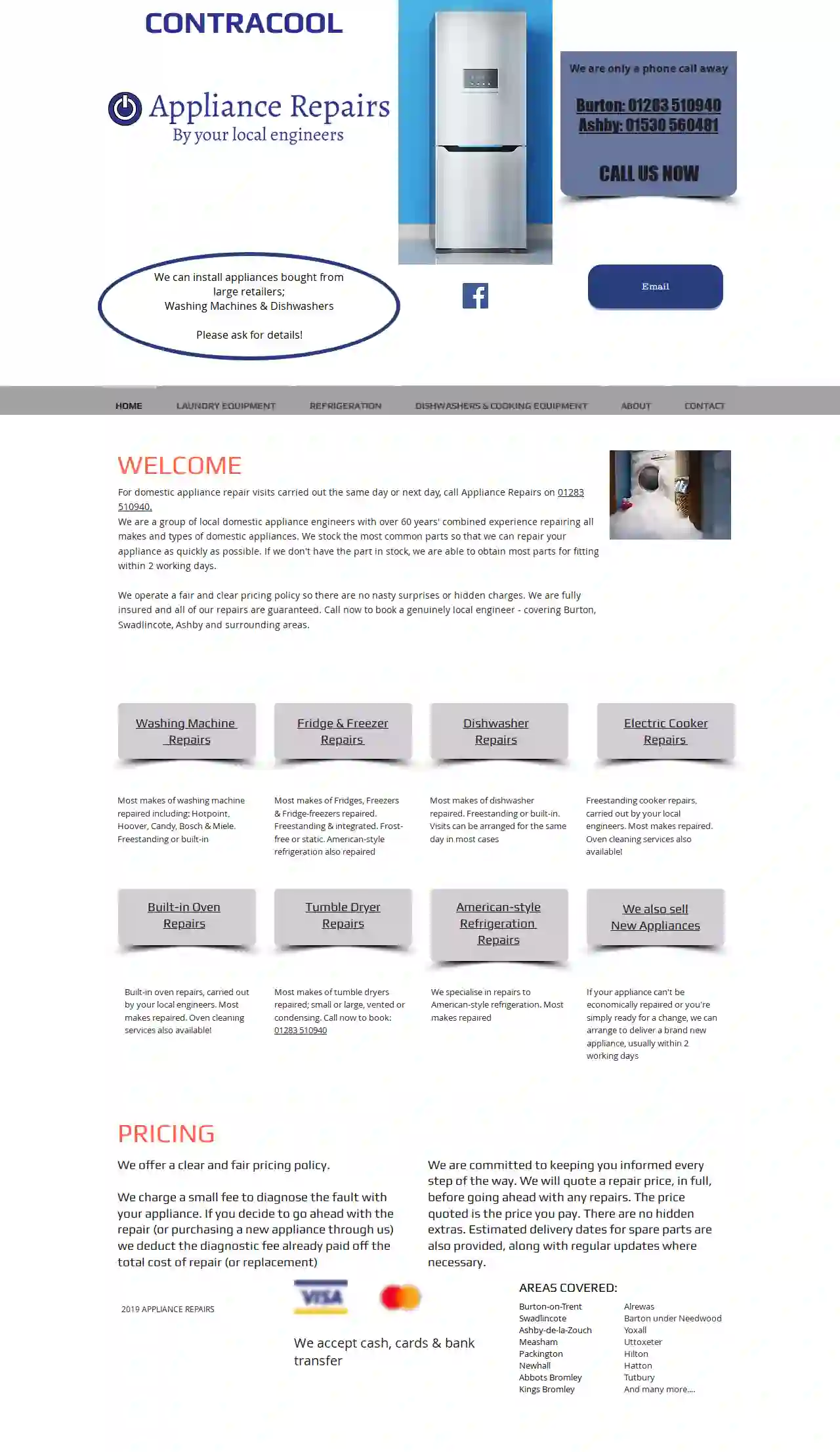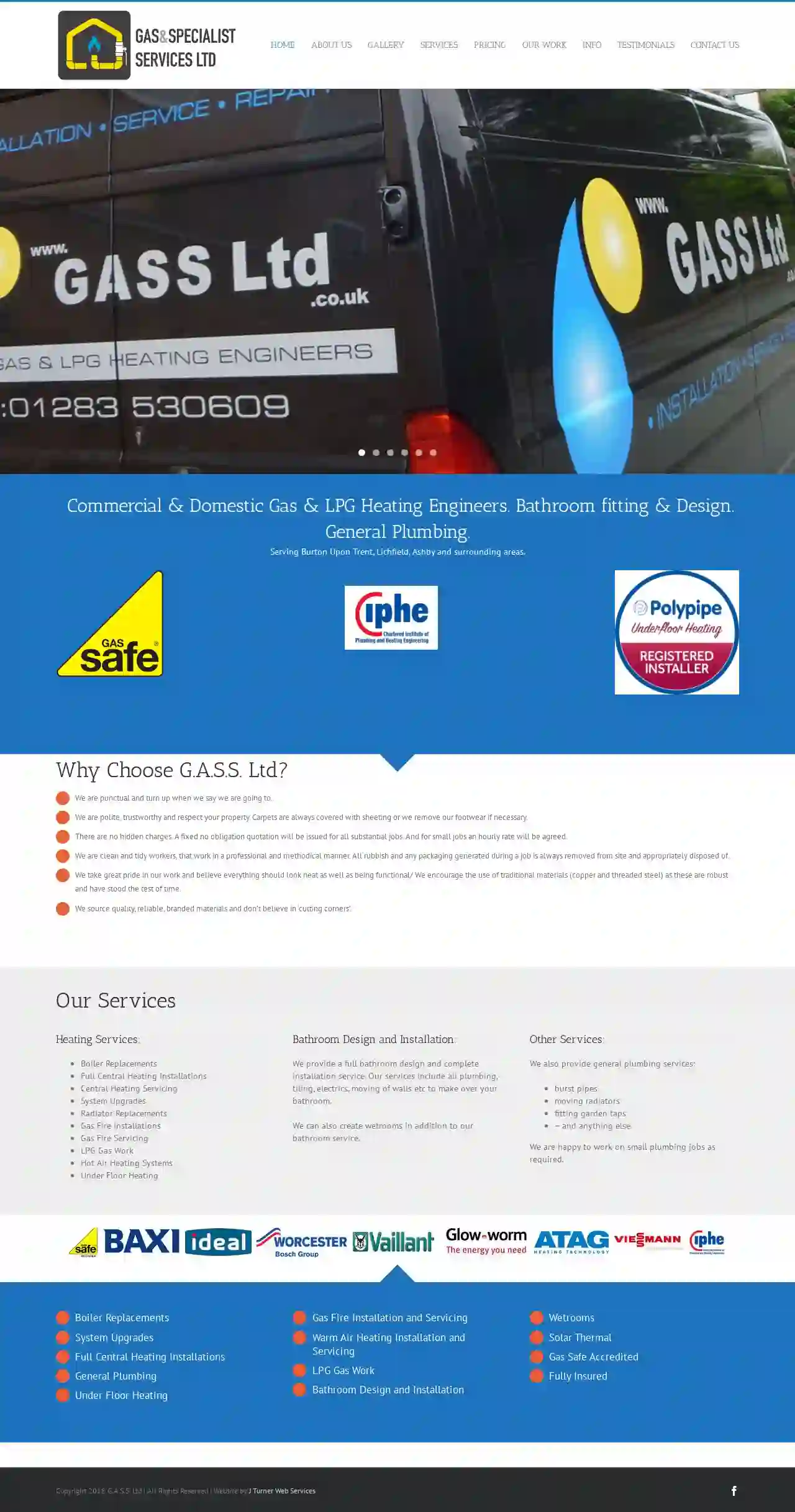Emergency HVAC Mackworth
Top 10 Emergency AC Repair in Mackworth
Get up to 3 24/7 HVAC Repair quotes for your project today! Compare profiles, reviews, accreditations, portfolio, etc... and choose the best service.

One Hour Heating & Air Conditioning® of Denver
4.7123 Main St, Denver, 80202, GBOne Hour Heating & Air Conditioning is a premier HVAC service provider in the United States. We care about your comfort and respect your time and trust. We back all our work with a 100% customer satisfaction guarantee for two years and are always on time - guaranteed. Our team of experts is dedicated to providing reliable heating and air conditioning systems that you don't have to think about. We offer a range of services, including emergency HVAC services, air conditioning, AC repair, AC installation and replacement, AC maintenance, heating, heater repair, heater installation, heater maintenance, boilers, furnaces, heat pumps, ductwork, duct cleaning, duct repair, duct installation, duct sealing, air quality, air handlers, humidifiers, thermostats, and more. We are committed to providing exceptional service and ensuring your home is comfortable and safe.
- Services
- Why Us?
- Gallery
Get Quote
M Noton & Sons Plumbing and Heating
4.947 reviewsWhatstandwell, Matlock, Knowleston, Wirksworth Road, DE4 5HS, GBM Noton & Sons Plumbing and Heating is a local, family run business based near Wirksworth in Derbyshire. We pride ourselves in our customer service and always do whatever we can to help our customers. With over 50 years of experience in the plumbing and heating industry, our engineers are qualified to give expert advice. We are Worcester Bosch accredited as well as being part of GRANT UK’s G1 installer scheme. We offer a wide range of services for all your plumbing and heating needs, including gas boiler installations, servicing and commissioning, oil boiler servicing, oil tank installation, and more. We cover a wide area in Derbyshire, including Matlock, Belper, Wirksworth, Ashbourne, Derby, Chesterfield, Bakewell, and all the local villages.
- Services
- Why Us?
- Accreditations
- Our Team
- Gallery
Get Quote
Yee Group
4.722 reviewsUnit 1, The Maltings, Burton on Trent, DE14 1, GBEstablished in 1985, Yee Group is an award-winning team of engineers and electricians based in Burton on Trent. We can undertake design, installation, repairs and ongoing planned maintenance for a range of critical building services including air conditioning, refrigeration, security systems, fire alarms and electrical contracting. Yee Group is an NICEIC Approved Contractor. Our team will ensure your electrical installation meets the latest wiring standards. The continuing success of Yee Group was recognised in the Burton Mail Business Awards where the company won ‘Business of the Year’ for our focus on professionalism and quality service. We are proud of our apprentices too. One of the most successful won ‘Best First Year Electrical Apprentice’ beating all other students on the course.
- Services
- Why Us?
- Accreditations
- Gallery
Get Quote
Contracool Appliance Repairs
4.733 reviewsDerby, GBCONTRACOOL is a group of local domestic appliance engineers with over 60 years' combined experience repairing all makes and types of domestic appliances. We stock the most common parts so that we can repair your appliance as quickly as possible. If we don't have the part in stock, we are able to obtain most parts for fitting within 2 working days. We operate a fair and clear pricing policy so there are no nasty surprises or hidden charges. We are fully insured and all of our repairs are guaranteed.
- Services
- Why Us?
- Gallery
Get Quote
Gas & Specialist Services Ltd
54 reviewsAshby Road, Ashby-de-la-Zouch, Unit 1, Ashby Business Park, DE65 6LH, GBG.A.S.S. Ltd is a commercial and domestic gas and LPG heating engineers, bathroom fitting and design, and general plumbing company serving Burton Upon Trent, Lichfield, Ashby, and surrounding areas. We pride ourselves on being punctual, polite, trustworthy, and respectful of our customers' property. Our services include boiler replacements, full central heating installations, central heating servicing, system upgrades, radiator replacements, gas fire installations, gas fire servicing, LPG gas work, hot air heating systems, under floor heating, bathroom design and installation, and general plumbing services. We are Gas Safe accredited, fully insured, and committed to providing high-quality workmanship.
- Services
- Why Us?
- Accreditations
- Gallery
Get Quote
One Hour Heating & Air Conditioning® of Shelton
4.546 reviewsDerby, GBOne Hour Heating & Air Conditioning® of Shelton is your trusted local HVAC provider, dedicated to keeping your home comfortable year-round. We understand that your time is valuable, which is why we offer 'Round the Clock Availability' and guarantee to arrive within your chosen time window, or your service call is free. Our commitment to customer satisfaction is unwavering, backed by a 100% Satisfaction Guarantee for up to two years on all our work. We pride ourselves on StraightForward Pricing® Guide, ensuring transparency and no hidden fees. We're more than just an HVAC company; we're your neighbors, committed to providing reliable, expert service with respect and integrity.
- Services
- Why Us?
- Accreditations
- Gallery
Get Quote
Trent Gas Solutions LTD
521 reviewsDerby, GBTrent Gas Solutions is your local gas specialist. We specialise in boilers, from servicing to repairs, to supplying and fitting the latest energy efficient models. We are here for all your boiler and heating related needs. Whether you need a boiler installation, servicing, or repair, we are here to help. We also offer cooker installation, landlord gas safety checks, and gas emergencies. For all your central heating needs, we have full central heating, unvented system, and underfloor heating solutions. For commercial catering services, we provide annual gas certificates, gas interlock systems, and commercial appliance installations. Contact us now for a quote!
- Services
- Why Us?
- Gallery
Get Quote
TF Solutions Ltd, Burton
51 reviewsDerby, GBTrusted Air Conditioning, Refrigeration and Heat Pump Wholesaler. Call: 03300415283. We are a leading supplier of air conditioning, refrigeration and heat pump products, with a wide range of products from top brands. Our commitment to you is to provide the best service and product range, with a reputation for reliable customer service. We strive to innovate in every part of our business to help all our customers, large and small, to grow with us.
- Services
- Why Us?
- Our Team
- Testimonials
- Gallery
Get Quote
JCS Plumbing and Heating
5585 reviews12 York Street, Chesterfield, S41 0PN, GBJCS Plumbing & Heating has been involved in plumbing, heating and property maintenance since 2005. Our client base includes housing associations, letting agents, private landlords and private homeowners. Our fully qualified engineers have over 25 years experience in carrying out all aspects of plumbing, heating and gas work for the domestic market - from installations and upgrades, to repairs and ongoing maintenance. Only use a GAS SAFE REGISTERED ENGINEER to FIT, FIX and SERVICE your gas appliances. Click here for more info. We Are A Worcester Accredited Installer Worcester Accredited installers are recognised domestic and commercial heating companies that meet or exceed the standards of sustained quality of installation, service and customer care. These installers are accessible through the official Worcester Bosch website. Worcester Bosch ensure our clients receive a high standard of workmanship and professionalism, our accredited companies are monitored by several recognised trade and industry bodies
- Services
- Why Us?
- Accreditations
- Gallery
Get Quote
Giordano's Heating & A/C
4.862 reviewsDerby, CT, 13 Roosevelt Dr., 06418-1605, GBGiordanos Heating and Air Conditioning is a local business that provides reliable HVAC services to residents of Derby and surrounding areas. With a combined 50 years of experience, the team at Giordanos Heating and Air Conditioning has brought the best home comfort service to Derby families since 1979. We offer heating and cooling expertise that keeps homeowners comfortable year-round, and are fully trained on the latest HVAC products, maintenance and technology. Our goal: professional, high-quality work and total customer satisfaction.
- Services
- Why Us?
- Accreditations
- Our Team
- Testimonials
- Gallery
Get Quote
Over 12,692+ HVAC Companies on our directory
Our HVAC contractors operate in Mackworth and surroundings!
HVACCompaniesHub has curated and vetted Top HVAC Companies in and around Mackworth. Find a top & trustworthy contractor today.
Frequently Asked Questions About Emergency HVAC Services
- Raise Your Thermostat: Set your thermostat to a higher temperature when you’re away. Consider using a programmable or smart thermostat.
- Use Fans: Fans can circulate air and make you feel cooler, allowing you to raise the thermostat a few degrees.
- Close Window Coverings: Keep curtains or blinds closed during the day to block out sunlight.
- Limit Heat-Generating Activities: Avoid running heat-producing appliances (ovens, dryers) during the hottest parts of the day.
- Annual AC Maintenance: Schedule yearly maintenance for your air conditioner to ensure it's running efficiently.
- Plant Shade Trees: Planting trees around your home can provide natural shade and reduce heat gain.
What is a heat exchanger, and why is it important?
How can I cool my home efficiently?
How can I prevent future HVAC emergencies?
How do I find an emergency HVAC technician near me?
What is a heat exchanger, and why is it important?
How can I cool my home efficiently?
- Raise Your Thermostat: Set your thermostat to a higher temperature when you’re away. Consider using a programmable or smart thermostat.
- Use Fans: Fans can circulate air and make you feel cooler, even at a higher thermostat setting.
- Close Window Coverings: Keep curtains or blinds closed during the day to block out sunlight.
- Limit Heat-Generating Activities: Avoid running heat-producing appliances (ovens, dryers) during the hottest parts of the day.
- Annual AC Maintenance: Schedule yearly maintenance for your air conditioner to ensure it's running efficiently.
- Plant Shade Trees: Planting trees around your home can provide natural shade and reduce heat gain.